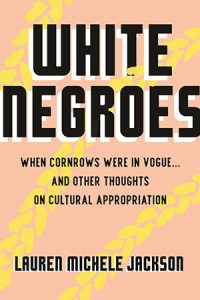 Not to hit you all over the head with the message that systemic racism is an issue that permeates basically every sphere – though it is and if you needed the reminder, here it is – but let’s talk a little about cultural appropriation and racism in the food industry (specifically at Condé Nast with their Bon Appétit magazine), because recipe sharing over social media has boomed in these past few months due to quarantine, and many of us have been baking and cooking a lot more than before and following new bakers and cooks/chefs for their recipes.
Not to hit you all over the head with the message that systemic racism is an issue that permeates basically every sphere – though it is and if you needed the reminder, here it is – but let’s talk a little about cultural appropriation and racism in the food industry (specifically at Condé Nast with their Bon Appétit magazine), because recipe sharing over social media has boomed in these past few months due to quarantine, and many of us have been baking and cooking a lot more than before and following new bakers and cooks/chefs for their recipes.
For anyone who’s thinking about why I’m dragging politics into food and cooking, because isn’t food just food? Food brings people together! People bond when eating together at the same table, right, and what better way to learn about other cultures than to incorporate their food into your life? That’s great and all, but let’s think about what happens when that food gets removed from the culture whence it (or its influence) came. When recipes such as the Internet famous Spiced Chickpea Stew with Coconut and Turmeric* by Alison Roman makes no reference whatsoever to perhaps Indian curries or maybe Caribbean curry or any other “ethnic” food culture she might’ve been inspired by – because did Roman invent this combo, or were there influences from other cultures that should at least be cursorily mentioned? Just think about what a surreal experience it must be for anyone who has grown up with something similar to #TheStew to see it show up without any reference to their culture, and then further see this disembodied aspect of their culture go viral… without any credit to their culture? Personally, I think basically everyone ultimately stands to gain by discussing the politics of food, first because as Socrates in the words of Plato said, “the unexamined life is not worth living” and there is lots to uncover and examine when it comes to food and the politics and histories of the dishes themselves in addition to the food industries and how they contribute to or are influenced by systemic racism; but also because the more you know about the food you eat and/or cook, I think, the more you learn to appreciate the food. As this article from The Atlantic (talking about food media in this quote, but on the topic of whiteness in the food industry as an article): “Devoting more coverage to the social and economic realities that drive the industry—rather than only discussing dishes in a vacuum—has allowed for more meaningful explorations of how food brings people together.” (Giorgis, The Table Stays White).